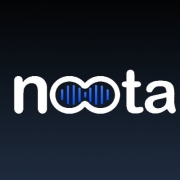Speech-To-Text Services are essential for converting spoken language into written text efficiently. These services benefit a range of applications, from transcribing meetings to content creation, facilitating easier information access and management.
Speech-To-Text Services use advanced machine learning models to accurately transcribe spoken words into text. They are crucial in fields requiring documentation and accessibility, such as education, media, and customer service. Service providers often offer features like real-time transcription, multiple language support, and integration with different platforms to enhance efficiency and user experience.
What are the critical features of Speech-To-Text solutions?Industry-specific applications of Speech-To-Text Services include automatic transcription of legal proceedings in the legal industry, recording and documenting patient interactions in healthcare, and converting customer interactions into text in call centers to enhance service delivery.
Organizations benefit from Speech-To-Text Services through improved documentation, better compliance tracking, and increased productivity. These services streamline the conversion of audio to text, saving time and resources while improving accuracy in information processing.


























Speech-To-Text Services utilize advanced algorithms and extensive language models to accurately understand and transcribe diverse accents. These services are constantly trained on vast datasets containing variations in pronunciation, ensuring improved accuracy over time. You can expect most leading providers to handle a wide range of accents effectively, though some specific or less common accents may still require tailored solutions or additional training data.
Can I integrate Speech-To-Text Services into existing systems?Integration of Speech-To-Text Services into existing systems is typically straightforward due to the availability of APIs provided by most service providers. These APIs allow you to seamlessly incorporate Speech-To-Text capabilities into applications, customer service systems, or other enterprise solutions. Many providers offer extensive documentation and support to facilitate integration, ensuring that the process is efficient and aligns with your existing infrastructure.
What industries benefit most from Speech-To-Text Services?A wide range of industries benefit from Speech-To-Text Services, including healthcare, legal, customer service, and media. In healthcare, these services efficiently transcribe medical notes, while in legal sectors, they help convert court proceedings into text. Customer service operations use it to improve call center efficiency, and media companies apply it for accurate subtitle generation and content creation. If you're in these fields, leveraging Speech-To-Text technology can streamline operations and enhance productivity.
Are Speech-To-Text Services secure and compliant with data regulations?Most leading Speech-To-Text Service providers prioritize security and compliance, implementing robust encryption methods and policies to protect user data. They often comply with major regulations such as GDPR and HIPAA, ensuring that the data processed is secure and confidential. Before selecting a service, it's crucial to review their security protocols and compliance certifications to ensure they meet your requirements.
What are the cost factors for using Speech-To-Text Services?The cost of using Speech-To-Text Services depends on several factors, including volume of usage, required accuracy, and additional features such as real-time transcription or language support. Some providers offer tiered pricing models based on these elements, while others may provide custom options for large-scale deployments. When evaluating costs, consider the balance between price and the quality of service to ensure it meets your operational needs and budget.